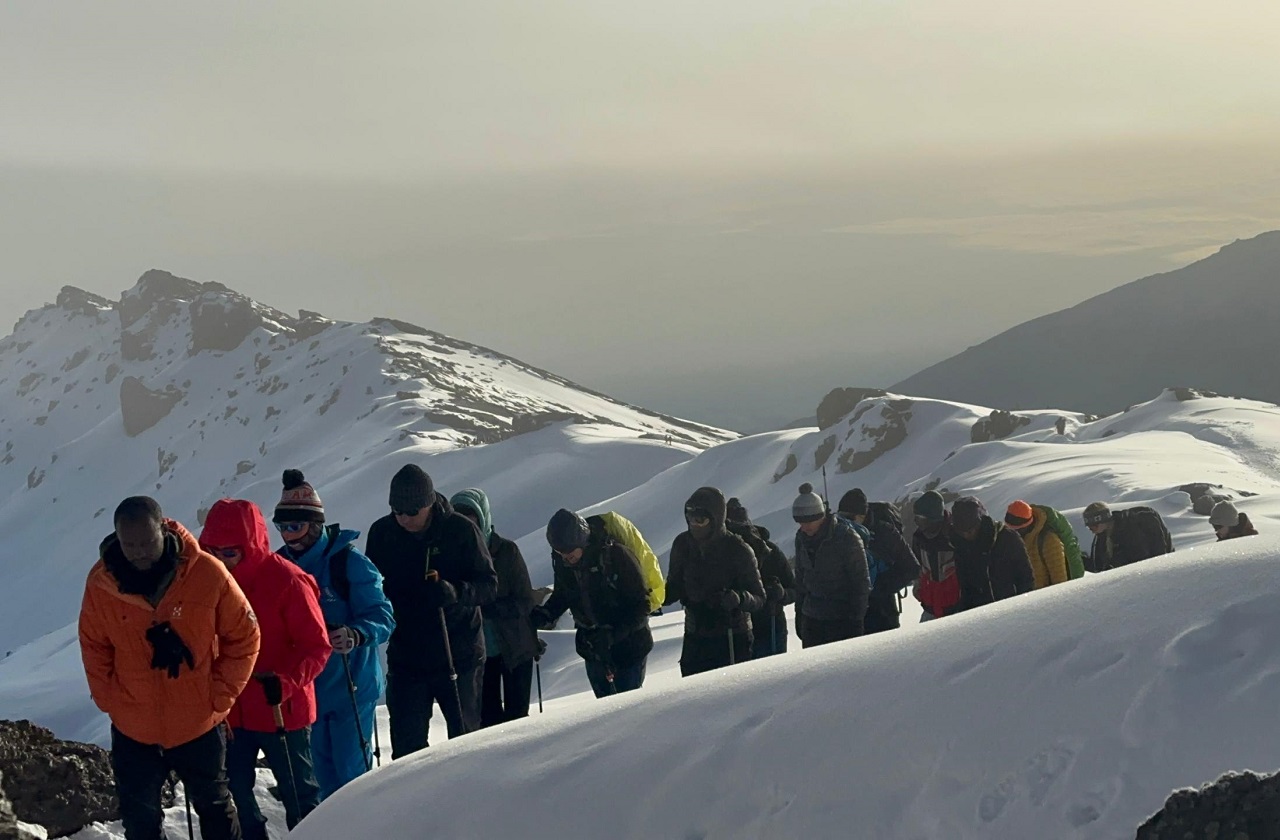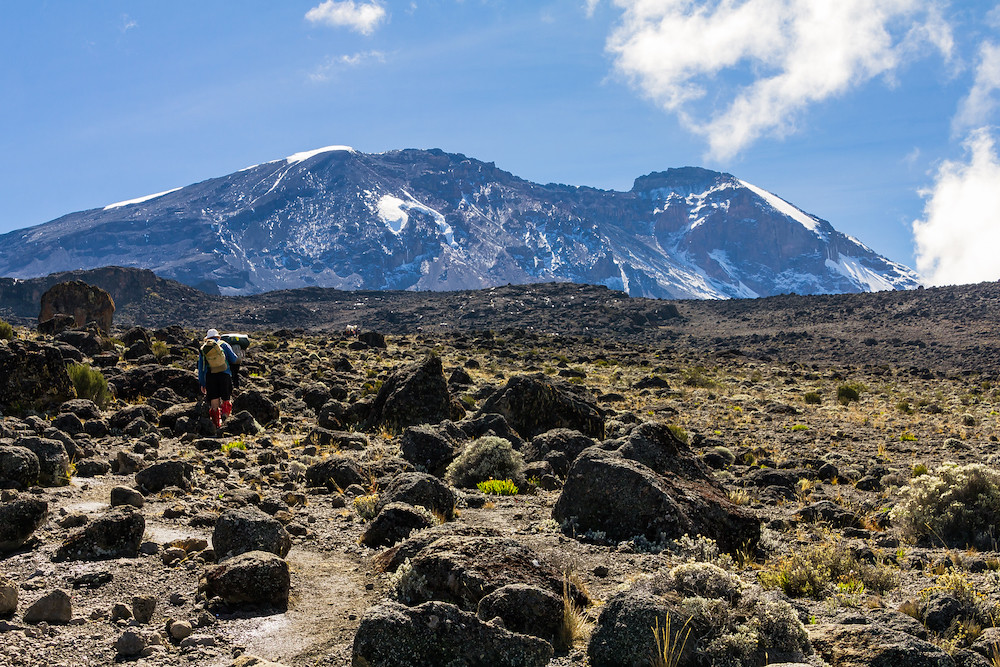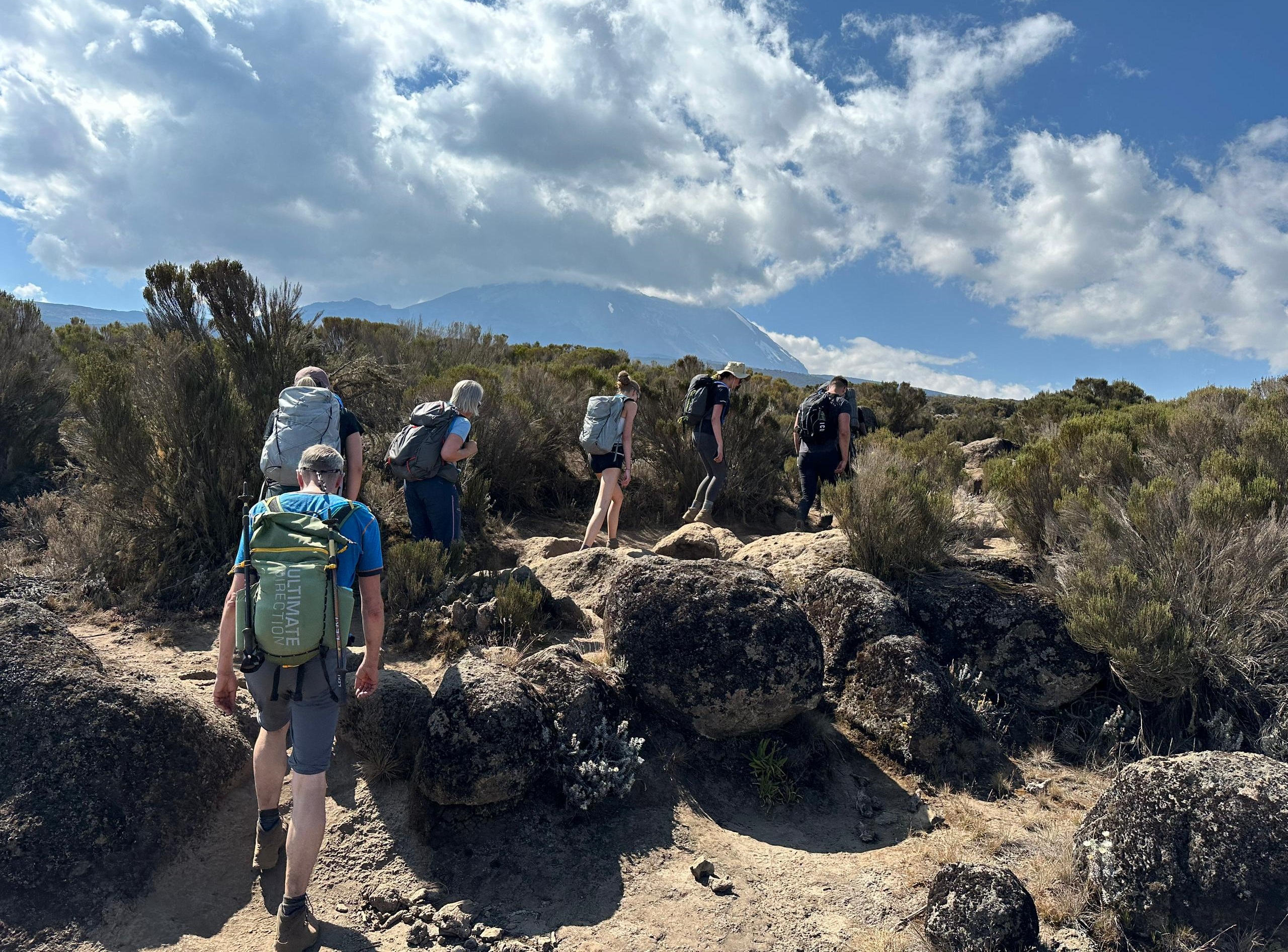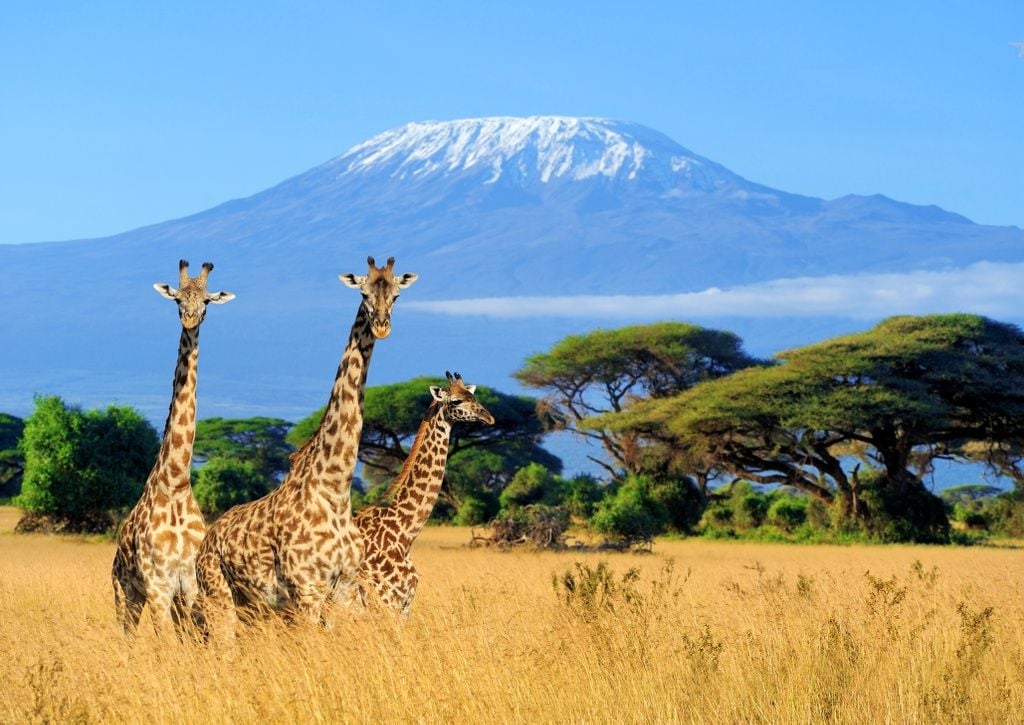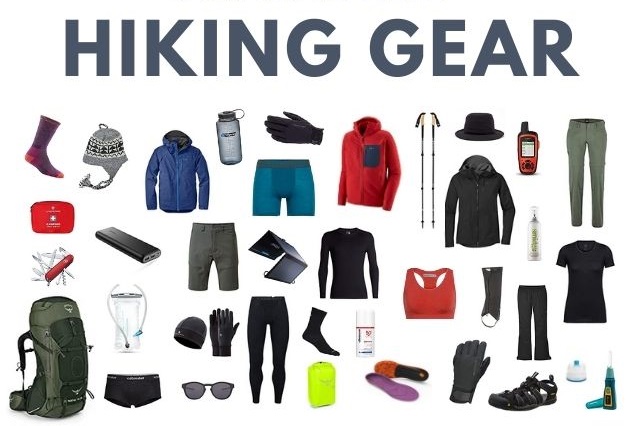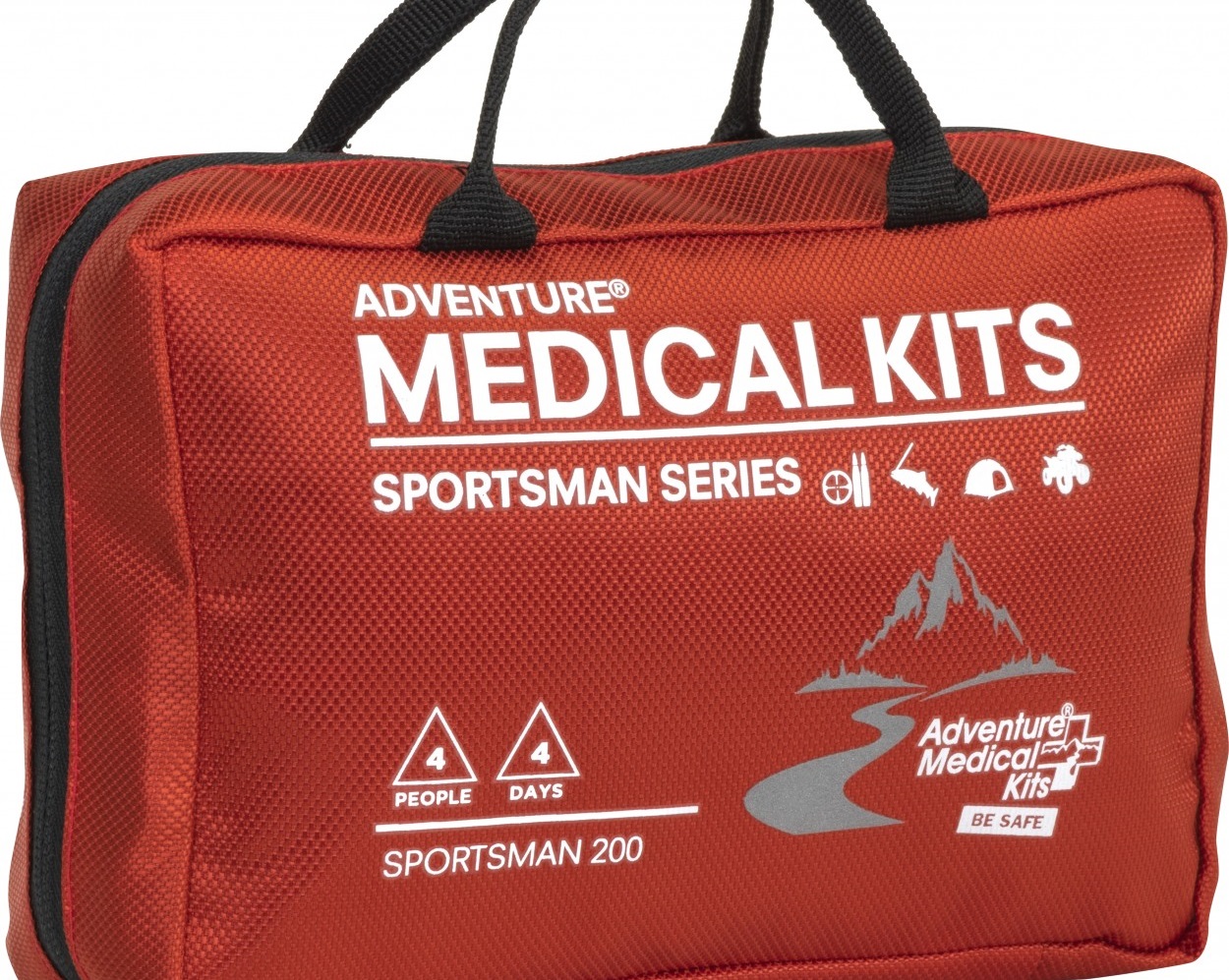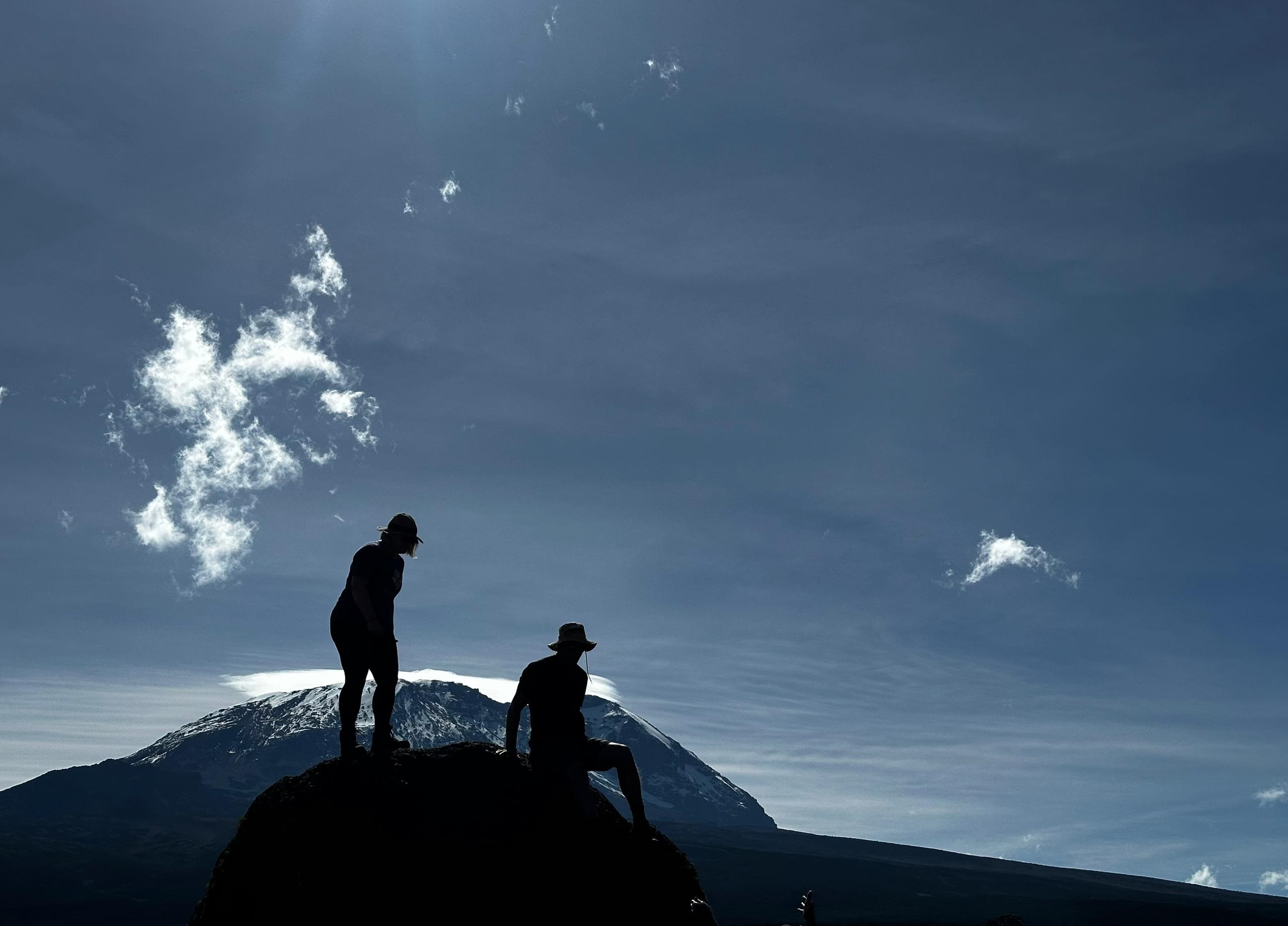Shira Route
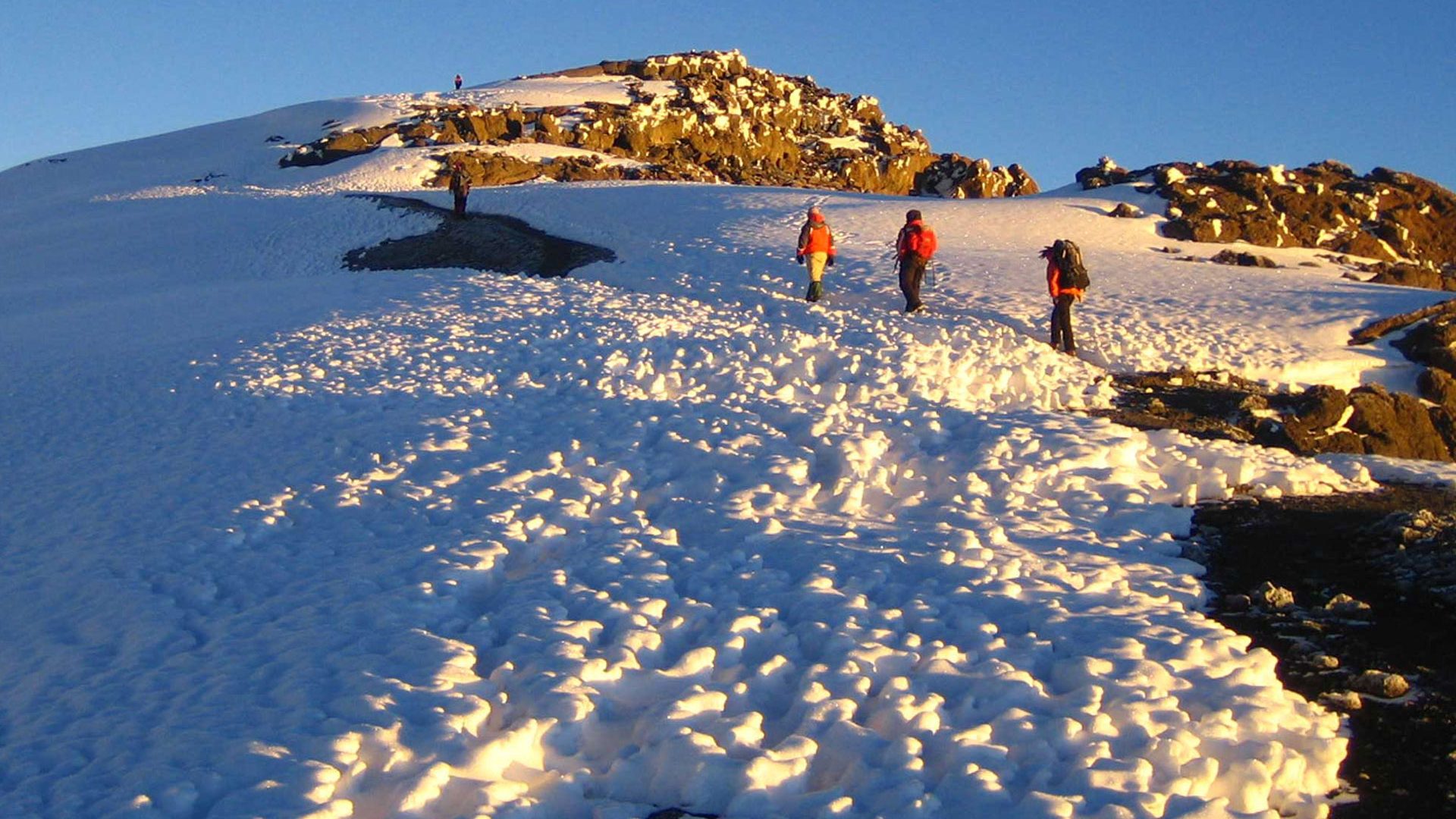
7 Days Shira Route
On the first day you will drive to Londros Gate for registration and continue drive to Murom starting point before joining the Lemosho Route at Shira Camp 2. The high starting point is however a major negative for this route as many experience altitude sickness from day one without enough time to acclimatize.
What To Expect On Trekking
The route over the Shira Plateau has several possible variations. After Shira Camp 2 the route joins the Machame Route via Lava Tower, and then descends to the Barranco Camp via the Southern Circuit. Ascent to Uhuru Peak is made via Barafu Camp and up the southern slopes of Kibo.
The route is seldom used by other trekkers and so your initial two days on the mountain are less crowded than on most other routes.
Explore the Details Itinerary
Day 0: Arrival
Arrival at Kilimanjaro International Airport (JRO), where you will meet a Kilimanjaro Joyful Adventures representative, and transfer to the hotel under the rate. The hotel will provide all the essentials for a comfortable stay
Day 1: Morum Barrier to Shira 1 Camp
Elevation: 3,414 m to 3,500 m
Distance: 4 km / 2 miles
Hiking time: 2 hours
Habitat: Forest
Today you're driven to Londorossi Park Gate, where you're entered in the registry of the Kilimanjaro National Park. You're then driven quite a ways to Morum Barrier. Your climb begins here, and you trek through heath and moorland to arrive at Simba Camp, where you stay for the night.
Day 2: Shira 1 Camp to Shira 2 Camp
Elevation: 3,505 m to 3,847 m
Distance: 6 km / 4 miles
Hiking time: 4-5 hours
Habitat: Alpine desert
Today your trek takes you past beautiful moorland rock formations and across volcanic rock plateaus. You also cross Shira Cathedral, which is one of the three peaks of Kilimanjaro. Tonight you stay at Shira 2 Camp.
Day 3: Shira 2 Camp to Lava Tower to Barranco Camp
Today's trek consists of two parts: the climb to Lava Tower, followed by the descent to Barranco Camp. This plan is in keeping with the 'climb high, sleep low' strategy that allows for good acclimatisation.
Part 1 | Shira 2 Camp to Lava Tower
Elevation: 3,847 m to 4,630 m
Distance: 8 km / 4 miles
Hiking time: 4-5 hours
Habitat: Semi-desert
Today you hike up to the impressive rock formation called Lava Tower at 4,630 m (15,419 ft) above sea level. It takes four to five hours to get there and is a true highlight of the entire Kilimanjaro trek.
Part 2 | Lava Tower to Barranco Camp
Elevation: 4,630 m to 3,976 m
Distance: 3 km / 2 miles
Hiking time: 2-3 hours
Habitat: Alpine desert
After lunch at Lava Tower, you head down to Barranco Camp, a hike that takes about two to three hours. The campsite is located in a valley below the Western Breach and great Barranco Wall.
Day 4: Barranco Camp to Karanga Camp
Elevation: 3,976 m to 3,995 m
Distance: 5 km / 3 miles
Hiking time: 4-5 hours
Habitat: Alpine desert
This is a short hiking day of four to five hours that's focused on helping you to acclimatise. After an early morning breakfast, it’s time for you to conquer Barranco Wall. Although it may look intimidating at first, trekkers usually report that it turned out to be much easier than they anticipated.
At the top of the wall, you're above the clouds and enjoy superb views of the Southern Ice Fields and the summit. The trail then winds up and down until you arrive at Karanga Camp.
Day 5: Karanga to Barafu Camp
Elevation: 3,995 m to 4,673 m
Distance: 4 km / 2 miles
Hiking time: 3 hours
Habitat: Alpine desert
It’s getting real! You’re now very close to the summit and have some amazing views of the mountain during your ascent of just three hours to reach Barafu Camp, which sits at 4,600 m (15,091 ft). An early dinner is served so you can get some rest before attempting the summit that same night. Before you go to bed, your guide briefs you in detail on how best to prepare for summit night.
Day 6: Barafu Camp to Uhuru Peak to Mweka Camp
Today is summit day! It's time for the big push – to dig deep for everything you have to make it to the summit.
Part 1 | Barafu Camp to Uhuru Peak
Elevation: 4,673 m to 5,895 m
Distance: 5 km / 3 miles
Hiking time: 6-8 hours
Habitat: Arctic
The route ascends northwest into the dark night, and you walk over stone scree. In about six to seven hours, you reach Stella Point on the crater rim, which sits at 5,685 m (18,651 ft) above sea level. It should be around sunrise at this point. You then continue for an hour or so on a sometimes snow-covered trail before reaching Uhuru Peak, which is 5,895 m (19,341 ft) above sea level.
Uhuru Peak is the highest point in Africa! Be prepared to be overwhelmed by your accomplishment and the magnificent views!
Part 2 | Uhuru Peak and back down to Mweka Camp
Elevation: 5,895 ft to 3,068 ft
Distance: 12 km / 7 miles
Hiking time: 6-8 hours
After reaching the summit, you descend to Mweka Camp at 3,110 m (10,204 ft) above sea level. Here you spend your final night on the mountain after having hiked for about 12 to 16 hours today!
Day 7: Mweka Camp to Mweka Gate
Elevation: 3,068 m to 1,640 m
Distance: 10 km / 6 miles
Hiking time: 3 hours
Habitat: Forest
After breakfast we continue the descent down to the Mweka Park Gate to receive your summit certificates. At lower elevations, it can be wet and muddy. Gaiters and trekking poles will help. Shorts and t-shirts will probably be plenty to wear (keep rain gear and warmer clothing handy). From the gate, continue another hour to Mweka Village. A vehicle will meet you at Mweka gate to drive you back to your hotel in Moshi (about 30 minutes) or Arusha.
Price Include & Exclude
Includes
-
- Quality, waterproof, four-season private mountain sleeping tents:
- Professional, experienced, mountain guides:
- All Park fees
- Airport transfers
- Rescue fees
- All meals while on the Mountain
- Guides, Porters, cook salaries and park fees
- Quality Mess tents with table and chairs
- Large portions of fresh, healthy nutritious food
- Clean, purified drinking water
- Oximeter
- Medical Kit
- Emergency oxygen
- Crisis management and safety procedures
- Fair and ethical treatment of porters
- 2 Night Accommodation in Arusha/ Arusha before & after climb
Excludes
-
- Flights
- Alcoholic and soft drinks
- Visa fees
- Tips Personal spending monies for souvenirs etc.
- Travel insurance
